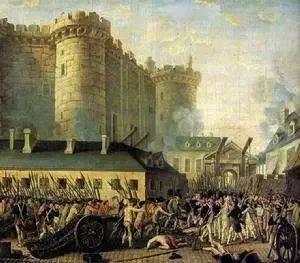Lesson 19: The French Revolution and the Napoleonic Empire
Time: 18th century
Country of origin: France
Contents: Propagate freedom, equality and democracy, oppose despotism, advocate enlightenment education for the people, and dispel the darkness of ignorance with the light of reason.
Representative figures: Voltaire, Rousseau, Montesquieu.
Nature and Influence: The Enlightenment was a great intellectual emancipation movement that made important theoretical preparations for the French Revolution.

Revolutionary background: The old system restricted economic development, intensified the contradictions in French society, supported American independence and caused France's financial crisis, Louis XVI convened a three-level meeting to discuss the issue of taxation. The third level of the conference put forward the requirements of the institutional constitution, and the contradictions intensified.
The Revolution Begins: On July 14, 1789, the people of Paris captured the Bastille, marking the beginning of the French Revolution.
Declaration of The Rights of Man:
Promulgated: August 1789
Description: Declaration of human rights, rule of law, freedom, separation of powers, equality and protection of private property.
Revolutionary developments:
In 1791, the Constituent Assembly enacted a constitution that abolished the old system and established the basic framework of the new system.
The French army defeated the Allied Forces of Aurp at Valmy, abolished the monarchy, and established the First French Republic.
In 1793, Louis XVI was sent to the guillotine.
The Jacobins took to the stage:
Chief: Robespierre.
Measures and implications: Quelling the domestic rebellion at home, repelling the anti-French coalition army externally, and pushing the French Revolution to a climax.
The influence of the Revolution: destroyed the monarchy of France, spread the bourgeois idea of liberal democracy, and had a worldwide impact.
Seizure of power: In 1799, the Napoleonic Code coup d'état formed a new government.
Measures: Internal emphasis on improving finances and developing the economy, vigorously developing industry and commerce and agriculture, formulating the Napoleonic Code; defeating the anti-French alliance externally and expeditions to the European continent.
Establishment of the Empire: In 1804, France was changed to an empire, known as the "First French Empire" in history, and Napoleon was crowned emperor.
Expedition Defeat: In 1812, Napoleon's expedition to Russia failed.
Fall of the Empire: The fall of the First French Empire in 1815.